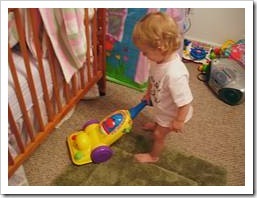I recently got this question from a mother:
 “I agree with a lot of your parenting style but I set clear rules and boundaries but you say not to punish. What happens when your teens will not put their dishes in the dishwasher, won’t clean their room, or basically not do anything you ask. I even say please have your room cleaned by Sunday evening, giving them the choice and responsibility to do it. If I remind or ask again on Sunday evening, I am nagging.
“I agree with a lot of your parenting style but I set clear rules and boundaries but you say not to punish. What happens when your teens will not put their dishes in the dishwasher, won’t clean their room, or basically not do anything you ask. I even say please have your room cleaned by Sunday evening, giving them the choice and responsibility to do it. If I remind or ask again on Sunday evening, I am nagging.
How do you approach these situations?
We have 3 teens and a 24yr old at home, none of them pick up after themselves. We do and try to lead by example but nothing changes and I don’t want arguments anymore.
Thanks, Tina”
Hi Tina,
In a way, what I talk about is also a form of punishment, but more related to the motivation of the children than to making Mom and Dad happy. Kids will not do things to make Mom and Dad happy. At least not teens.
The comfort of the early years disappears when kids develop a mind of their own (which every parent should be happy about) and with it comes the challenge of making them do the things we want them to do only because we want them.
If we only swap the word “punishment” with “consequences”, you and I both use punishment.
I am sure that it is frustrating when you lead by example, but still the kids do not participate in what you think they should. Sometimes, when I am upset, I ask my kids, “Have you ever seen me do this?” which obviously means they do not use my example or at least not what I think is the example I give them.
I will divide my answer into two parts:
- How to make sure you do not get into this situation
- If you are already there, how to get back out
Kids only behave in the way they are allowed to. The question of putting the dishes in the dishwasher or cleaning your room should have been addressed when your kids were 3 years old, when it is much easier to use the “this is what we do in our family” technique. No excuses!
I think the rules of helping in the family can be announced from as early as 3 years old. The earlier you start, the more times you say it and more likely your kids are to believe those are rules that cannot be changed. You simply state the “well known” and “indisputable” rule
In our house, everyone helps set the table
 Kids argue with this rule. They always do. They find an opportunity when Dad is not around or another member of the family is absent and say, “You see, not everyone helps set the table”. This is your opportunity to refine the rule
Kids argue with this rule. They always do. They find an opportunity when Dad is not around or another member of the family is absent and say, “You see, not everyone helps set the table”. This is your opportunity to refine the rule
In our house, everyone who is present and not busy helping the family in another way, helps set the table
Even at the age of 3, this is important. When it was not clear enough for my kids, I set the table for everyone else and not for them. You could say it was punishment, but I would rather call it consequences and a way to teach kids that participating gives them privileges. I am not punishing you. You have given up your privilege to be part of the family. Try it once or twice and no kid will argue with you anymore. If they try to just put their own plate on the table, you say, “This is a team, a family, Dad was in charge of cooking (or working so we can buy things to eat), I was in charge of … and this was our contribution to the family. What’s yours?”
Tip: if one parent says it, the other one, after an hour or so, can go to the kid and offer him to make himself a plate to eat only if he understands that he must take part in the contribution.
I do not recommend setting rules with immediate consequences, because kids are very smart and they find ways to punish you in return. The younger they are, the easier it is to set the rules without saying what the consequences are, but you must know for yourself what you will do if they do not do what they need to do. You must have the answer for it from the minute you set the rules. Kids always push the boundaries and you need to be prepared for them asking, “What if I don’t do it?” By the way, every time they are not doing it, they are actually asking you this question.
It is always better to present the privileges as consequences rather than punishment as consequences:
 If you help set the table, you get to eat
If you help set the table, you get to eat- If you help set the table, you get to free my time and I can play with you after dinner
- If you help set the table, you become part of the family
- If you help set the table, you share the burden and will get help in return when you need it
You must be ready to stand by your rules when the time comes:
- You can’t eat with us, because you didn’t help
- I can’t play with you, because you didn’t help and it took me a long time to set the table
- You can’t join us, because you didn’t help and you are not sharing the burden
- Sorry, I cannot help you, because you didn’t help me
I know it is not easy to say these things. The first times I said something like that were hard, but when you mean it, they know.
Whenever you punish, it needs to be presented as your kids’ choice to give up their privilege – “You chose to play while we set the table, so now you don’t get to enjoy play time before bed”.
I am sure your 24-year-old daughter gets endless privileges that you can take away from her.
- Having a mobile phone is a privilege
- Having a computer is a privilege
- Having an Internet connection is a privilege
- Watching TV is a privilege
- Being driven by your parents to and from school/university is a privilege
- Alternatively, driving a family car is a privilege
- Having your own room is a privilege
- Eating at home is a privilege
- Living at home for a 24-year-old is a major privilege with laundry, food, cleaning and lots more
- Inviting friends over is a privilege
- Hobbies are privileges
- Any cent you spend on her is a privilege
- Joining a family outing is a privilege
- Taking her into consideration when you plan something is a privilege
 I personally have a 21-year-old, a 14-year-old and a 9-year-old. The most challenging one in terms of helping around the house is the youngest, mainly because I am not here most of the time to make sure we follow the rules.
I personally have a 21-year-old, a 14-year-old and a 9-year-old. The most challenging one in terms of helping around the house is the youngest, mainly because I am not here most of the time to make sure we follow the rules.
When my kids say, “But no one helps at my friends’ house”, I say, “This is what you have to do for the privilege of living in our house. When you live in your own house and are the captain of your family ship, you get to choose who will clean. Until then, Dad and I are the captains and we hold the responsibility and we have made the choice to share the housework”.
I was lucky I did not have to say it too many times. I say it once and they know I mean it. When something goes wrong, I remind them of their privileges. They can always walk to school (or wash their own clothes, etc) if they really want to.
Fear of arguments could be a weakness that your kids use against you and the older they are, the more sophisticated they become at using your weakness against you.
I can give you a good example of it.
When my oldest daughter was young, she did not want to go to sleep, so sometimes she would get out of bed and stand in the living room, saying, “Mom, I’m hungry”. This was an hour after a good dinner and Eden was a good eater, but for some reason, I found this statement so hard to handle I would take her to the kitchen and make her something to eat. I knew she was not hungry, but I could not tell her to go to bed without food.
When Gal and I talked about it, we realized she never, ever went to Gal with this. She always came to me and when I was not around, she would just go to sleep. So the solution we found was that whenever she came to me at night and said she was hungry, I sent her to Gal. “Dad will take care of you”. He only had to send her to bed once or twice before she gave up. Hungry kids are my weakness and she knew it since she was 2 years old.
I know your kids are not young and the “this is how we do it here” might be a bit challenging at this time, but I have some recommendations:
 Sit with your partner and talk about your expectations
Sit with your partner and talk about your expectations- Only address the expectations you agree on. Kids know when Mom and Dad disagree on something. They consider this a weakness and will use it against you
- Choose your battles and focus on one thing at a time. This may seem like it will take longer, but the second batter will be much easier than the first and your chances of success will increase
- Give yourself 21 days to create a new habit and a new rule that everyone follows
- When telling your kids their privileges, tell them they can get them only if they follow the house rules
- Remind them that, by law, you are the responsible people in the house and that a family is not a democracy (You can always suggest a lesson in democracy: this is how much it costs to run the house by hiring a cleaner, a driver, an accountant, paying bills, etc, divided by the number of members of the family, so each of must give X to the family budget or do chores instead).
- When your kids do not follow the rules, remind them they are “giving up their privileges”
- Have the courage to take privileges away. You only need to do it once or twice to show you are serious
- When your kids do take part in the house chores, say something nice. Tell them you appreciate it and extend their privileges if you can
Kids must understand that running a household and managing a family requires money, time and emotional resources. The more they put in, the more money, time and emotional resources you can give them in return.
I hope it helps.
Happy parenting and good luck,
Ronit
No posts found
 If you help set the table, you get to eat
If you help set the table, you get to eat Sit with your partner and talk about your expectations
Sit with your partner and talk about your expectations







